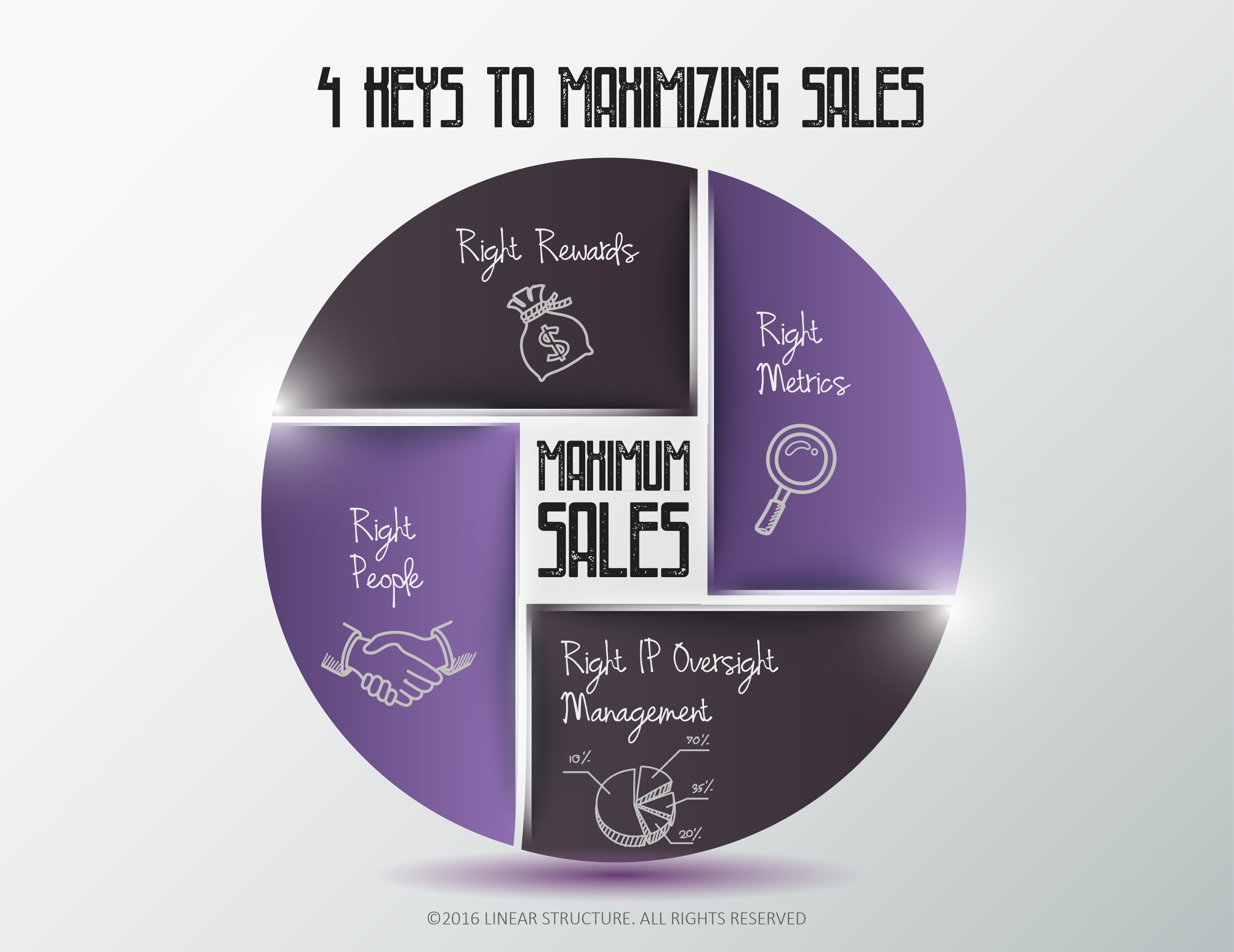1. Right People – Foundational to creating high performance is getting the right team in place. No other activity can substitute for the work done at this initial stage. Creating a professional sales recruitment process will save you hours and hundreds of thousands in revenue. Focus on discovering the qualities that have made sales people successful in your company or industry. Set about creating a list of the top ones you will look for and identify during the whole interview process. Apart from relevant experience, consider the individual’s character. Will they fit into this team and add value? For more specific suggestions and insights on creating this process why not read the special report, Recruiting an All-Star Sales Team.
https://www.linearstructure.com/insights/special-reports/recruiting-an-all-star-sales-team/
2. Right Management Oversight – Once you decide to hire your new sales person what’s next? How can you ensure they become a champion for the business? How can your on-boarding process save you thousands in recruitment and training costs? What would a 10% reduction in staff attrition contribute to the bottom line?
Much has to do with how you use the first 90 days together. Many companies present the new sales person with their company manual ,mobile and laptop. Followed by some basic product and brand training. They are then dispatched into the field only to be reunited again with their manager at the next sales meeting. This formative and highly valuable first three-month period is a topic that receives little attention. But the impact on staff retention and the bottom line is significant and wide spread. Read the article How crucial are the first 90 days to your success for some useful insights.
https://www.linearstructure.com/how-crucial-are-the-first-90-days-to-your-success/
In addition to creating confident new staff who are comfortable and competent. An on-going structured sales management process is required to manage a high-performance sales team. If you’d like to understand more about how these processes can help you gain visibility and control. The video – The 5 Pillars of Sales Management clearly explains the value of these processes. https://www.linearstructure.com/insights/videos/
Ultimately by using a collaborative approach with your team they will grow in proficiency and allow you to maximise their potential.
3. Right Metrics – Selecting the right metrics may at first glance seem a rudimentary affair. However, research has shown there is in fact a great variety when it comes to what the top companies choose to measure and monitor. This is surprising when you consider these companies have decades of sales experience and invest literally millions into their CRM systems. Would you expect to find a clearly defined short list of key sales metrics for the rest of us to implement religiously? Well probably…but that’s simply not the case.
So, it’s not uncommon to find companies measuring all kinds of facts and figures simply because they can. In addition, old historic reports will be added to newer ones as new managers join the business. Soon this reporting can morph into a plethora of data that threatens to drown any sales manager.
I recently worked with a Managing Director who had an assortment of 25 different multi-colored graphs to demonstrate sales performance! We must stop this insanity and get the data to work for us and not against us.
One way to do this is to cull back. Ask yourself this question.
Why am I measuring this?
The only reason to measure something is because it’s linked to the key activities you need to take to achieve your goal. Or to check the results you’re getting to ensure you are on the right path and enable you to make any needed mid-course correction.
4. Right Rewards – Setting up the correct commission structure is vital to drive the desired behavior from the sales team.
Often companies treat their commission structure as a separate entity to their sales strategy. Oblivious it seems of the strong link between what people do and what they get rewarded for.
I’ve worked with firms that paid commission even if the sales people didn’t hit target! I’ve seen companies put a cap on earnings where the salespeople were incentivised to literally sit back and relax once they had achieved target three months before the year end! Then there was the company that surrounded the achievement of commission with caveats linked to the company achieving their overall net margin. What do you think this plan did to the sales team’s motivation? But most frequently I see companies that are paying their commission based on general or arbitrary KPI’s. They’re not harnessing the power and energy of their sales teams by directing their behavior and efforts in the most effective way.
So why not actively encourage the specific behaviors you want to see. Create the reward system that focuses the sales team’s time and effort in line with the company’s sales strategy.
Fine tuning these 4 areas takes time, effort and diligence but the payoff in consistent and exponential sales growth is well worth the effort.






